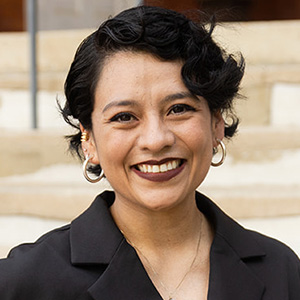A conversation about resources for STEM postdocs
What resources are available to postdoctoral fellows? What barriers and supports exist for the postdocs community?
During National Postdoc Appreciation Week, the American Society for Biochemistry and Molecular Biology held a LinkedIn chat to address these questions. Four panelists discussed shared resources to help postdocs who are pursuing careers in science, technology, engineering or mathematics.
The conversation took place on the ASBMB LinkedIn page using the hashtag #NPAW. This transcript has been edited for length, clarity and style.
Panel introductions
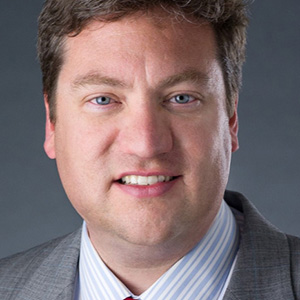
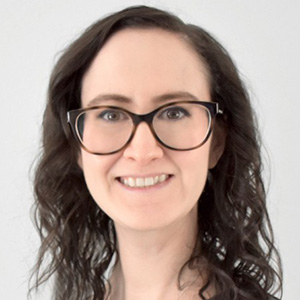

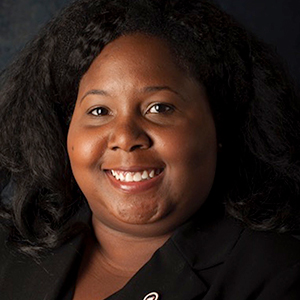
Tom Kimbis: I'm the executive director and CEO of the National Postdoctoral Association, the national voice of the postdoctoral community. We have 20,000 individual members and 250 research institutions as members.
Our mission: To improve the postdoctoral experience by supporting a culture of inclusive connection. At the individual, organizational, and national levels, we facilitate enhanced professional growth, raise awareness, and collaborate with stakeholders in the postdoctoral community.
Our vision: We envision an inclusive community where all postdocs are empowered, valued, recognized, and supported in their current and future endeavors.
As executive director, I oversee strategic operations for our association.
Membership in the NPA is free to all postdocs, grad students, faculty and staff whose institutions are members of the NPA (over 250 institutions are members). Join here.
Elizabeth Aguilera: I am the programs director at SACNAS, the Society for Advancement of Chicanos/Hispanics and Native Americans in Science. We are an inclusive organization dedicated to fostering the success of Chicanos/Hispanics and Native Americans, from college students to professionals, in attaining advanced degrees, careers, and positions of leadership in STEM. As the programs director, I provide vision and oversee all SACNAS programs, including those in the Student Programs, Native Initiatives and Professional and Leadership Programs Department.
Dustielyn Savage: I serve as the program director for the International Center for Professional Development, or ICPD, which primarily benefits ethnically diverse and underrepresented groups. Our programs serve students, industry executives and entrepreneurs by utilizing facilitated mentoring, direct instruction and web-based learning. I oversee the implementation of the programs as well as lead the recruitment efforts for university applicants.
Raechel McKinley: I'm a senior science policy manager at the ASBMB, an international scientific society that supports about 12,000 scientists at multiple career stages, from undergraduates to experienced investigators in academia, government and industry. The mission of the ASBMB is to advance the science of biochemistry and molecular biology and to promote the understanding of the molecular nature of life processes.
I work alongside the ASBMB Public Affairs Advisory Committee to advocate for increased funding for scientific research; improving diversity, equity, accessibility and inclusion in STEM; addressing emerging issues in the research enterprise; and supporting the next generation of scientists. I also manage the ASBMB Advocacy Training Program which provides members with hands-on science policy and advocacy skills to conduct an independent advocacy project.What resources does your organization have for postdocs?
Kimbis: The NPA maintains a large resource library full of resources for postdocs and postdoc office leaders. The library is free to all members. Once you have joined the NPA it’s easy to use. Simply visit the library site and explore. Topics include advocacy, career, diversity, international, and mentoring. Tools are broken into publications, toolkits, and webinars. The tools are developed primarily by our volunteer committees to address specific needs in the postdoc community.
Aguilera: For postdocs, SACNAS offers relevant webinars and access to premier programs, including grant writing workshops, an online postdoc community and a formal leadership training institute. SACNAS’ programs are designed to support professionals, including postdocs, to strengthen their competencies and reach their career goals. Programs are specifically designed with both professional development and community-building aspects in mind. These well-rounded programs equip and empower professionals to thrive in their careers and continue their STEM journey with tangible skills, a network of support and an empowered sense of self. Our goal is to equip postdocs with the skills they need to be successful in their careers while building lasting relationships along the way — which they may not have the opportunity to receive at their current institutions. Learn more on our website.
Savage: ICPD has several programs to help postdocs and companies in the biotechnology pharmaceutical, medical technology and consumer health care industries with their diversity, equity and inclusion initiatives. An example is the Scholars of Diversity Engagement Program conducted by Johnson & Johnson. Another is the Scientist Mentoring and Diversity Program. This one-year career mentoring program pairs ethnically diverse students (baccalaureate, master’s or Ph.D./postdoc) with senior executive industry mentors who work at companies in industry. SMDP helps students successfully transition from academia to a professional career. Each year, SMDP awards expense-paid fellowships to students from the U.S. and Puerto Rico, and 70% to 85% of SMDP scholars secure positions in industry.
McKinley: The ASBMB has a number of resources available for postdocs. We have on-demand recordings of our online events which include webinars on topics such grant application budgets, crafting an effective teaching statement and becoming an early career review at the National Institutes of Health. We also have a career center where you can search for new positions, sign-up for job alerts, speak with a career coach and have your resume critiqued.
What type of professional development opportunities does your organization offer postdocs?
Kimbis: The NPA offers several professional development opportunities for postdocs, including:
SmartSkills - A monthly series of online, interactive classes designed to provide specific tools needed by the postdoctoral community for professional and personal success. SmartSkills takes place on the fourth Tuesday of each month at 3 p.m. ET and is free to all members.
MyPostdoc webinars. Several webinars are taught throughout the year of interest to the postdoc community and are free to all members.
Volunteering for the NPA committees. Great leadership and management skill development opportunities.
Aguilera: SACNAS offers year-round support for postdocs, including relevant webinars as well as our SACNAS Postdoc Community Program, which is free for our postdoc members and hosted virtually on the Discord platform. The SPCP is intended to help postdocs build community with the next generation of scientists with an opportunity to share resources and connect in a meaningful way.
We also offer the Postdoc Leadership Institute, a training program to strengthen postdocs leadership competencies, including building the skills to set values-based priorities and to lead teams in a culturally responsive manner. Reach out to me at elizabeth@sacnas.org if you are interested in learning more.Dustielyn Savage: Once accepted into SMDP the scholars receive the following: a five-day in-person professional development training experience and attendance to a major industry conference; one year of virtual mentoring; training on resume development, personal brand and elevator pitch; and lifetime membership to an online community that includes job postings, networking, professional development curriculum and ongoing virtual events.
Raechel McKinley: ASBMB provides many professional development opportunities available for postdocs.
The society is a part of the NIH funded Maximizing Opportunities for Scientific and Academics Independent Careers MOSAIC program, or MOSAIC, part of the NIH’s efforts to enhance diversity within the academic biomedical research workforce and is designed to facilitate the transition of postdoctoral researchers from diverse backgrounds into independent faculty careers in research-intensive institutions.
ASBMB offers the Art of Science Communication Course where members can learn how to become effective science communicators.
Our public affairs department offers the Finding the Funds webinar series that educates members on funding training opportunities and federal funding agencies.
When are abstracts submission deadlines, travel award deadlines and dates of your organization’s annual conference?
Kimbis: The NPA Annual Conference registration opens in early October for the largest conference for the postdoc community in the U.S. Next year we will be in Boston, Massachusetts on March 21-22, 2025. Tons of professional development opportunities including concurrent sessions, keynote speakers, networking opportunities. Abstract submission period is open now and closes Sept 30. NPA Scholarship (travel and childcare award) applications close on Oct. 7.
Aguilera: SACNAS hosts the annual National Diversity in STEM conference, NDiSTEM, the nation’s largest multidisciplinary and multicultural STEM diversity conference. This gathering serves to equip, empower, and energize participants for their academic and professional paths in STEM. Over the course of the event, college-level through professional attendees are immersed in cutting-edge STEM research, professional development sessions, motivational keynote speakers, and the Academic & Career Expo, as well as multicultural celebrations and traditions, and an inclusive and welcoming community of peers, mentors, and role models.
NDiSTEM is held each year in late October. Research presentation abstract submissions and travel scholarships open in early spring (spring application period) and early summer (summer application period), and session proposal submissions open in early spring. Our 2024 conference will be Oct. 31 through Nov. 2.
Savage: SACNAS is an amazing conference! SMDP has had a booth there in previous years and we are looking forward to being there this year again as well.
SMDP has two programs: SMDP Biotech and SMDP MedTech. In 2025 SMDP Biotech will take place in Boston, June 14-19, and SMDP MedTech will take place in San Diego, Oct. 4-9, 2025. SMDP attendees participate in Bio International and the MedTech Conference respectively.Raechel McKinley: The 2025 ASBMB Annual Meeting will be held in Chicago, April 12-15. The early-decision deadline for abstracts is Oct. 30. and the deadline for travel awards is December 9.
How and where can a postdoc get involved?
Kimbis: NPA always welcomes new volunteers who can participate in committees such as advocacy, resource development, international issues, diversity efforts, meetings (our annual conference) and engagement. Volunteering helps advance a great cause and is a strong addition to your CV or resume as well.
Aguilera: #Postdocs can get involved with SACNAS by volunteering in several capacities:
- As a mentor through our Mentor Activation for Students (MAS) program
- As a Research Presentation Abstract Reviewer
- As a Travel Scholarship Application Reviewer
- As a Session Proposal Reviewer
- As a board member or subcommittee member
- As a mentor judge at NDiSTEM
- As a mentor during our annual Conversations with Scientists Session at NDiSTEM
To learn about these and more volunteering opportunities please visit our Volunteer page. If you are interested in becoming a member please visit our membership page!
Savage: Applications for the 2025 programs will be open by the end of September, and the deadline will be April 4. 2025. The application and call for applicants can be found on the SMDP website.
McKinley: If a postdoc is interested in honing their nonscientific writing skills, they can volunteer as a contributor to ASBMB Today. Applications for new contributors will be accepted for 2025.
Enjoy reading ASBMB Today?
Become a member to receive the print edition four times a year and the digital edition monthly.
Learn moreFeatured jobs
from the ASBMB career center
Get the latest from ASBMB Today
Enter your email address, and we’ll send you a weekly email with recent articles, interviews and more.
Latest in Careers
Careers highlights or most popular articles
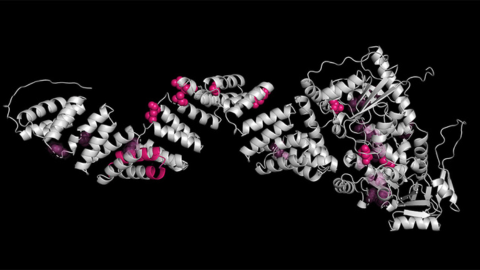
Upcoming opportunities
Friendly reminder: May 12 is the early registration and oral abstract deadline for ASBMB's meeting on O-GlcNAcylation in health and disease.

Sketching, scribbling and scicomm
Graduate student Ari Paiz describes how her love of science and art blend to make her an effective science communicator.

Embrace your neurodivergence and flourish in college
This guide offers practical advice on setting yourself up for success — learn how to leverage campus resources, work with professors and embrace your strengths.

Upcoming opportunities
Apply for the ASBMB Interactive Mentoring Activities for Grantsmanship Enhancement grant writing workshop by April 15.

Quieting the static: Building inclusive STEM classrooms
Christin Monroe, an assistant professor of chemistry at Landmark College, offers practical tips to help educators make their classrooms more accessible to neurodivergent scientists.

Unraveling oncogenesis: What makes cancer tick?
Learn about the ASBMB 2025 symposium on oncogenic hubs: chromatin regulatory and transcriptional complexes in cancer.

